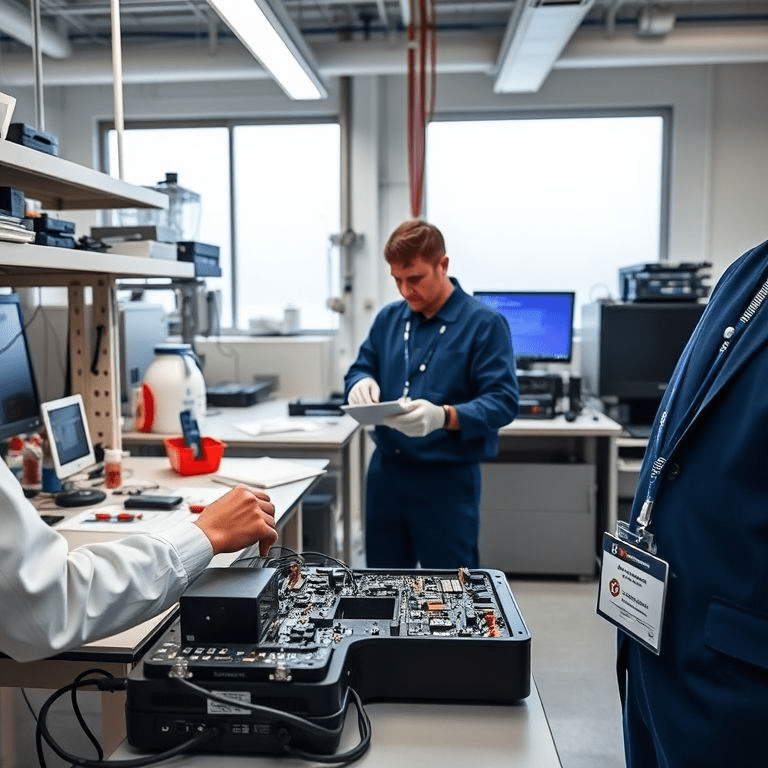Introduction
The Andhra Pradesh MedTech Zone (AMTZ) has formally unveiled its new initiative i-Passport, a MedTech innovation platform designed to speed up product development, testing, regulatory approvals, and manufacturing for medical device and health-technology startups in India. The platform aims to address long-standing challenges in the MedTech sector, including high R&D costs, regulatory complexity, and infrastructural gaps. With India’s emphasis on self-reliance (Atmanirbhar Bharat) and domestic manufacturing in health, i-Passport is timely.
Background: Challenges for MedTech startups in India
MedTech in India has significant growth potential due to large demand for medical devices, healthcare technology, diagnostics, component manufacturing, etc. However, startups face multiple bottlenecks:
- R&D expenses and prototyping facilities are scarce and expensive.
- Regulatory approvals (both for Indian regulators like CDSCO, ICMR, etc., and for export to other countries) are often slow, opaque.
- Testing, calibration, quality assurance, and meeting standards (ISO, etc.) require labs and facilities that many early ventures cannot afford or access.
- Manufacturing capability for devices, especially small‐scale or specialized ones, often lacks local supplier networks or economies of scale.
- Funding, mentorship, and networks are uneven across geographies; many startups outside metro areas struggle to find access to these.
AMTZ, established earlier as a nucleus for medtech R&D, prototyping, and manufacturing in Visakhapatnam, has existing infrastructure including incubation, testing labs, etc. The launch of i-Passport is intended to build on this foundation.
What happened: The launch & features of i-Passport
- Purpose: i-Passport is being positioned as a catalyst platform to connect medtech startups with the full pipeline: idea → prototyping → testing → regulatory compliance → manufacturing. It offers shared resources, regulatory advisory, mentorship, networking, and more.
- Infrastructure access: Startups using i-Passport will have access to AMTZ’s labs, fabrication facilities, prototyping units, calibration testing, etc. These shared facilities reduce the need for each startup to build their own full-scale labs.
- Regulatory support: Advisory support for navigating Indian medical device regulations, approvals both domestically and possibly internationally. Guidance on certification, quality standards, perhaps assistance with documentation or compliance research.
- Network & incubation: Mentors, experts, possibly clinician partnerships, biomedical engineers, regulatory experts will be part of the ecosystem. The platform connects existing incubators (about 75 currently) and plans to expand to over 200 incubators across India.
- Policy alignment & backing: i-Passport ties into national policies such as Make in India, Atmanirbhar Bharat, and healthcare capacity building. Government support and policy incentives may reinforce its long-term viability.
- Launch event: The program was officially launched/inaugurated in the presence of Prof. Ajay Kumar Sood, Principal Scientific Advisor to the Government of India, underscoring its strategic importance.
Reactions & Expert Perspectives
- From startups: Many medtech entrepreneurs welcomed the launch, calling it long overdue. Access to testing and regulatory know-how, especially in India, is seen as major friction point; i-Passport promises to reduce time and cost.
- Government/Policy experts: Supportive. India needs robust domestic capabilities for manufacturing medical devices, especially in light of global health crises (e.g. pandemics). Platforms like i-Passport help build resilience, reduce import dependence, and generate jobs.
- Academics and industry specialists: Caution about implementation. Having labs and advisory is good, but capacity, quality, turnaround times, transparency and cost of services will matter. Also, ensuring the platform is accessible to startups in remote or non-metro regions is key.
- Regulatory bodies: Likely to view favorably, if the governance, standards, and compliance structures are sound. They may also impose oversight to maintain safety, performance and ethical standards in device development.
Impact: What i-Passport could enable
- Reduced time-to-market: Because prototyping, testing, regulatory steps can be streamlined via access to shared infrastructure and mentorship, startups can move from prototype to product faster.
- Cost savings: Shared facilities reduce capital expenditure. Shared access, economies of scale, perhaps subsidized or tiered pricing make it more affordable for early-stage players.
- Quality & standardization: With regulatory advisory and standard test labs, startups can ensure devices meet required safety and quality standards, which will help in both domestic adoption and potential exports.
- Ecosystem development: More incubators onboard, more startups, more clusters forming around medtech innovation. Possibly attracting investment, partnerships, foreign collaborations.
- Broader health outcomes: Faster innovation in diagnostics, medical devices, health tech can improve access to medical care, lower costs for patients, possibly better outcomes.
Future outlook
- Scale and reach: The success will depend on how rapidly i-Passport can scale to incubators country-wide, especially covering underserved geographies. Outreach, awareness, and distribution of services will matter.
- Sustainability & funding models: Will the platform be subsidized, or will startups pay fees? Will private investment be involved? Funding for maintenance and expansion of labs and advisory services will be important.
- Quality control & regulation: Ensuring labs are equipped, staff competent, regulatory guidance up to date, standards maintained; transparent operations will be key to trust.
- Private sector involvement & partnerships: Device manufacturers, healthcare providers, hospitals, export markets may partner. Also possible collaborations with universities, research institutes.
- Innovation & emerging technologies: Potential growth in health tech such as wearables, diagnostics, telemedicine, biocompatible devices, etc. i-Passport may enable innovation in cutting‐edge domains (medical robotics, AI-assisted devices, etc.).
Conclusion
The i-Passport MedTech innovation platform by AMTZ is a strategically important launch for India’s health-technology sector. By assembling infrastructure, regulatory support, mentorship, and shared facilities under one umbrella, it addresses multiple pain points for medtech startups. The platform’s success depends heavily on execution — quality, affordability, accessibility — but its design and backing suggest it could significantly accelerate the pace and volume of medtech innovation in India, help India produce globally competitive devices, and improve health outcomes.







